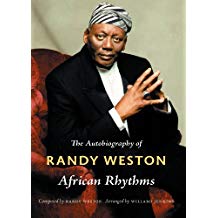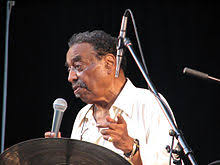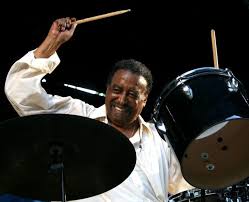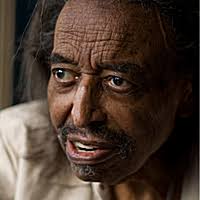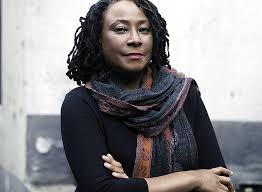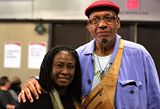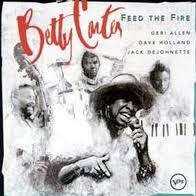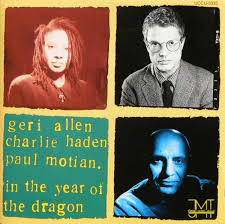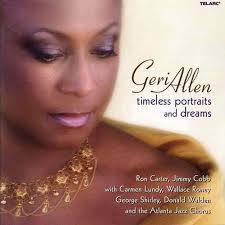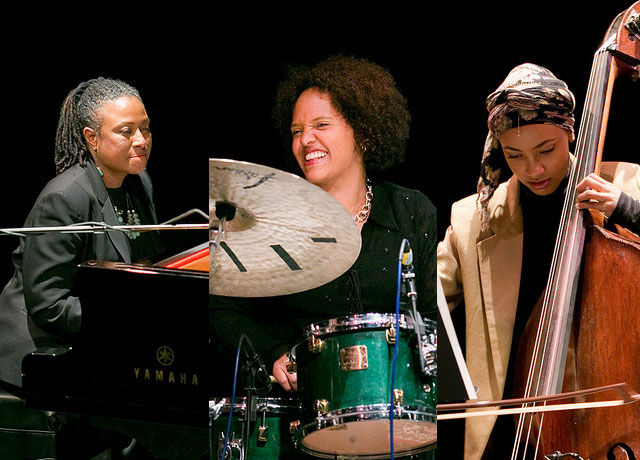In light of the September 1, 2018 passing on to ancestry of the great NEA Jazz Master pianist-composer-bandleader, and tireless seeker of the Spirits of Our Ancestors, RANDY WESTON, here for your reading pleasure – and to facilitate some catch-up on the part of those unfamiliar with Mr. Weston’s rich legacy – is Chapter 1, a sampler from the book African Rhythms, the autobiography of Randy Weston… Composed by Randy Weston, Arranged by Willard Jenkins.
African Rhythms
The Autobiography of Randy Weston
Composed by Randy Weston
Arranged by Willard Jenkins
© Willard Jenkins
P R O L O G U E
I come to be a story teller; I’m not a jazz musician, I’m really a storyteller in music, and I’ve had tremendous, unique experiences. My quest is always about considering these experiences together – in the spirit of our ancestors. Whether it’s when I hung out as a green piano player with one of my Brooklyn homies, the grandmaster drummer Max Roach , or the first time I played for the great Charlie “Yardbird” Parker; whether it was being in the black church on Sundays for that wonderful music that shaped me; whether it was playing in a little Army band during the war trying to dodge the bullets, or hanging with Thelonious Monk and being part of his vast sphere of influence… or being mesmerized by Sufi masters. I’m constantly assembling these forces to create a message, a message which comes directly through me passed down from the ancestors and ultimately the Creator.
In 2006 I passed the milestone of 80 years on the planet, so I’ve been on this path a long time. You know how life is… something that happened to you 30-40 years ago you don’t necessarily carry in your conscious mind, but it’s always there, buried in the deepest recesses of your mind, but influential nonetheless. Sometimes you can’t properly value what transpired at a particular time until many years later; then what I like to think of as your cultural memory kicks in. But the constant theme of my life that came directly from my mom & pop and our neighborhood in Brooklyn… was to fight for black people, for the liberation of our minds and spirits. Black people are in a constant struggle on this planet; we’re not completely respected for our enormous contributions, we are globally downtrodden and that must change. In order to change we must remember the greatness our ancestors, we must open up our creative minds, open that door that we’ve sealed as a result of slavery and being taken away from our Motherland. Additionally, we must celebrate our own diversity as a people because we are a very great people with unlimited spiritual resources.
I have always striven to be a part of that uplifting. I grew up in a truly vibrant time in the 20th century when such peerless giants as Paul Robeson, Adam Clayton Powell, Sugar Ray Robinson, Langston Hughes, Joe Louis, Duke Ellington, Billie Holiday, Hazel Scott, Jimmy Lunceford and other great black masters walked the earth; all very powerful, proud black men and women.
My very existence dictates that even before the importance of music in my life comes pride as a black man; even if I didn’t play music I’d still be fighting and striving for the black man. Music has been a way for me to convey that struggle; I’ve been blessed, gifted by the Creator with the power of music. But before the music comes tremendous black pride, coupled with anger at what racism has done to my people. That foundation of dignity and strength comes from growing up in a segregated, racist society; growing up alongside people who were considered a “minority.” I was endowed with the belief that ‘I know these so-called majority people are not better than me,’ so as a result we grew up spiritual but angry. I use the music as a way to unite our people. I use the music as a vehicle to say that we can develop a unique language and way of being that you cannot steal, because when we go back to our tradition you can’t steal the spirituality of African people. Africa is so deep that no matter how many times I return there I never fail to be educated and further immersed.
I’ve followed this path naturally. I don’t think it was a master plan in my head, but I think it stems from my father’s insistence and teachings that I am an African born and living in America; therefore I must take a broader examination of myself. I have to recognize that my ancestors did not begin with my grandfather or my great grandfather; my ancestors go all the way back to those remarkable people who built ancient civilizations. This music is my way of continuing the struggle of James Reese Europe, Marcus Garvey, Malcolm X, Dr. King, Cheikh Anta Diop… all of our great men and women; my quest is to try and continue in their footsteps, to use my music to enrich our people.
Growing up in Brooklyn, New York, surrounded by revolutionary Panamanians, Jamaicans, and African Americans; people like Langston Hughes, and J.A. Rogers… we had our own institutions like the black-owned Paragon Bank inspired by the Marcus Garvey movement in Brooklyn… the list is endless. Out of that incredible Brooklyn environment comes Max Roach, Randy Weston… Our people were fighters and in the ensuing years we’ve acquired a soft underbelly that has made us extremely vulnerable. When people say to me ‘man, what you’re doing is fantastic,’ I say ‘man, you don’t know your history’. If you knew what our people were doing in the 20s… Ellington and all those people wrote powerful music about black people. And that’s what I’m trying to do: write and play music celebrating the spirits of our ancestors, music about the historic greatness of our people, music to uplift us all: black, brown, beige, red, yellow, white… God is the real musician. I’m an instrument and the piano is another instrument. Africa taught me that.
Origins
My dad, Frank Edward Weston, came from a Jamaican family that was descended from the Maroons, a fierce and legendary people who never surrendered to the English during colonization. The Maroons were ferocious fighters, they escaped the Spanish and preferred freedom in the Blue Mountains over bondage, and that spirit was deep in my dad’s blood, but he was actually born and grew up in Panama. My paternal grandmother, who I never knew, had a bakery near the Panama Canal. My dad and his cousin Frisco, the famous entertainer and bon vivant Frisco of Europe who I’ll get to later, grew up together as kids and they used to take the train across the canal all the time. According to dad, Frisco was forever the clown, always the actor, the singer, and the dancer… obviously a budding showman even as a child. On this train Frisco would dance and perform for the passenger’s amusement and my father and another young guy would come behind him and collect the money. My dad was a true West Indian man, through and through, he had a potent combination of Panama and Jamaica, Spanish and Caribbean.
Dad and Frisco left Panama as teenagers and my father spent the next seven years living in Cuba. Then he came up to Brooklyn where he eventually met my mother, Vivian Moore, a wise but unassuming woman who was from Meredithville, Virginia. They got together, eventually got married, and they produced me. I was born April 6, 1926 at Peck Memorial Hospital in Brooklyn. My dad used to claim I was just about the first black baby born in that hospital. Remember, segregation was real deep back then. My mother and father separated when I was just 3 years old, and I went to live with my dad, though my mother and I remained close and were often together. Eventually my dad remarried two more times, but my mother never did. You would think my parents separating would have been a traumatic experience for such a young kid, but to tell you the truth it really wasn’t. In retrospect their separation and eventual divorce was probably a good thing because my dad was such a powerhouse, such a thoroughly domineering man; he was a real strong, totally macho Caribbean brother. On the other hand, my mother was this quiet, demure southern sister from Virginia; a very peaceful, spiritual lady who never once asked me for anything in my entire life. Whatever I wanted to do she supported me 100%. I don’t want to suggest that my father was physically abusive towards mom, but he was a powerful and all-consuming presence. Luckily my mother and father always loved each other in such a way that they never said a disparaging word about each other, at least not around me. That was a relief because they had such thoroughly different personalities.
My mother was a very small woman who was very tender, but at the same time she was quite strong and independent in her own sweet way. She was a domestic worker. When I wrote “African Lady” for my 1960 suite “Uhuru Afrika” she was my inspiration, she and all those strong sisters like her who had to toil and scrub folks’ floors to make that measly $15 a week, and they would never complain, never beg; such dignity I can’t even begin to describe. Mom was always kinda laid back, but she had a great sense of humor. She and my sister always had me cracking up. I found out later, from my sister, that mom used to go dancing at the Savoy Ballroom when she was young, but that part of my mother I never knew, she never talked about that.
My dad was about 6’2”, which in those days was really tall. I guess my eventual 6’7” would have been circus material back then! He was a clean shaven, handsome, dignified man, always dressed sharp and sort of a ladies man. My dad raised me from the time I was 3 years old, and my sister Gladys lived with my mother. I would go and stay with mom and Gladys every weekend, at my father’s insistence. My dad and I lived at several locations in Brooklyn, mainly in the Bedford-Stuyvesant area. Our first place was on Albany Avenue, where my mother, father and sister were living when I was born. Then we moved to Pacific Avenue, and then after that we moved over to Putnam Avenue. My mother, who always lived in Brooklyn too after they split, lived on Decatur Street, on Eastern Parkway near Prospect Place for awhile, and her last home was on Empire Avenue. Every weekend I’d be with my mother and my sister, and they’d have me in church every Sunday; that was the law! That church experience proved very important to my music later in life.
My dad loved to cook, and I think one of the reasons I’m so big is because he was such a wonderful cook. Between my dads’ African-Caribbean style cooking, and my mother’s down-home Virginia cooking, I was blessed with great food. Man, we were economically poor but we never felt that, we lived like kings & queens. My dad always had his women, a variety of different ladies, but no matter whatever woman he was seeing or married, the first thing he insisted upon is that they had better take good care of his only son! He spoiled me like you would not believe; spoiled me with love, not with material things, so I wasn’t corrupted in that way. I never had a whole lot of clothes; I would get one new suit a year, at Easter, that was it… and I’d better keep that suit looking good for the rest of the year. If I ever got a hole in my sneakers, I’d put paper in those sneakers ‘till time to get a new pair, and that might not be for awhile. We once, thank goodness only temporarily, lived in an apartment with no steam heat and no hot water; we’d have to heat the water on the stove. And remember, I’m not talking about Mississippi or Georgia; I’m talking about winter time up north in Brooklyn, New York!
But we were so culturally rich and had so much love, so much discipline… Like all kids we didn’t appreciate it at the time, but getting older we sure recognized the beauty of all that love and discipline. My dad was a very political guy, always reading the newspaper and various books, always quick to share his opinions on things. There was a spiritual side of him that he never talked about, but you could sure sense it. People from the Caribbean islands have this deep connection to Africa and sometimes they tell their children who grew up in the U.S. about that, but they don’t always tell you everything. My dad was like that. As a result there was a mystery and magic about this man, to the point that during the time he was dying in the hospital from cancer, at age 87, I went to see him and he told me something incredible; this was after I had traveled a bit as a musician. He said ‘you go all around the world talking about freedom.’ I said ‘yes sir, that comes from you and your teachings.’ He said ‘well, since you talk about freedom so much, I want my freedom, get me the hell outta this hospital!’ I laughed, but he also told me something else, he said ‘you are protected.’ I never really probed him for what he meant by that, but when I look at my life, I have been protected, by some spirit; by some ancestor that has guided me to the right people, to the right places. I’ve fallen down and been able to right myself, so obviously what he meant by protection was a combination of these things.
Dad always preached about being independent, he always emphasized how black people should strive to own their own businesses, work for themselves, be independent of the white man. That’s why he appreciated Marcus Garvey’s black empowerment movement so much because that’s what Dad stood for. Dad was a very proud man. Like I said, he was always very sharply dressed and cut an impressive figure. He used to drive his Cadillac wearing beaver hats and spats. Guys were sharp in his day; they knew how to dress, not like so many guys today. But when he’d get in that car, you’d better beware! Dad loved to drive fast; he’d put the pedal to the metal and bam, he was gone. One day while driving in his Cadillac he actually hit this white pedestrian crossing the street and as he described the scene to me later, this guy flew way up in the air on impact. They had to call an ambulance and take this poor guy to the hospital, he was messed up. So my father ran home, went into the kitchen and made a big pot of soup, then he went down to the hospital and took this guy some homemade soup! Nowadays he’d be sued for everything he owned. What are you gonna do with a man like that?
He loved to cook and he loved children. Every child in that community was his child. If he saw a kid getting out of line, he’d grab them in a minute and say ‘straighten up’… and the kids all listened. And every kid in the neighborhood was like his kid. He didn’t care whether you were black, Italian or Irish, if he saw you doing something wrong he would grab you in a minute and straighten you out. He was very straight ahead, the kind of person who would speak whatever was on his mind; whatever he was thinking he’d tell you to your face. That’s the way we grew up. He was all those things. But in essence he gave me Africa; he gave me music… so he gave me everything.
My mother was kinda small in stature, with short dark hair; I remember she had unusually long arms. She was one of those very quiet, unassuming, modest, Sunday go-to-meetin’ kinda sisters; just a quiet southern sister from Virginia. After mom and dad broke up, during the week I would stay with my father, but I had to go stay with my mother and sister every weekend, my father would make sure of that. After mom and dad separated I never saw her with another man the rest of her life. I didn’t really appreciate how great she was until after she died. She was a church lady through and through; worked hard every day, but she was very independent and very sweet-natured. She wasn’t nearly the disciplinarian my father was, so I always looked forward to staying with her those weekends, that was freedom!
My sister Gladys was wonderful. During school days she was my body guard. She’s five years older than me and in those days we had some pretty tough people out there in our neighborhood, which was a predominantly black neighborhood of African Americans and African Caribbean people, with a few folks straight from the African continent. My sister protected me, she would whip somebody’s butt in a minute; you better not mess with her little brother! Sometimes I’d get in trouble and I’d call her. I’d tell people, ‘you mess with me, I’ll get my sister on you’, and the cats would back off. My sister used to tell me how our mother would discipline her, but I never really saw that side of mom. That’s when I realized how strong my mother was.
My mother may have been a staunch church lady, but my dad never went to church because he didn’t trust certain ministers. He felt like all they were doing was jiving, conning, and ripping off black people. He thought some of them were nothing but fried chicken eating frauds that saved the best for themselves and threw the bones to their congregation. Unfortunately this was true sometimes. But my mother was always devoted to the church, she gave me that wonderful spirituality, and despite his personal objections to those ministers, my dad saw the value in it and really wanted me to go to church, so there was no conflict there. My mother worked everyday, doing domestic work, taking care of folk’s children, washing, cleaning, that kinda thing. She was a real queen in every sense of the word, never complained for a moment.
I got a lot of my spirituality from dad as well. Though he had no use for those ministers and didn’t go to church, he would always read the bible and quote the scriptures. My dad came up in that period in time when black people were really active in the struggle for freedom and independence, so he was very aggressive in making sure I had pride in my people. He made sure I knew about Paul Robeson, all the great black artists, and that I knew who our illustrious leaders were; he always made real sure of that. Dad was always in tune with the news and the sports pages.
As a kid I was very shy despite my size; in many ways I was insecure because my dad was such a powerhouse, so fast, so formidable, and he wanted me to be likewise. But it just wasn’t in me. I was very nervous growing up because Dad was such a strong presence. He was forever trying to challenge and quiz me on various things. He’d say “how much is 145 times 10, or he would put a clock in front of me when I was 10 years old or so and if I didn’t have the right answer as quickly as he wanted it, he would whoop me. I got a whole lotta whippings, so I grew up very, very insecure because I wasn’t fast or a quick learner like he was. My father was a very physical man; he’d kick my butt, either with his hands, or it could be a belt, a club, could be anything. At the time that was just how it was, very typical of how kids were raised in my neighborhood. That’s particularly how those Caribbean people were, they didn’t spare the rod. I may have felt abused and nowadays they’d probably call it that, but at the time they didn’t call it abuse, they just thought of it as proper parenting. One time he whooped me so bad I got dramatic and stuck my head outta the window screaming for the police, the fire department, my buddies, the neighbors… just about ANYBODY who might help me! “Somebody please come rescue me!” But everybody’s parents did it! So we didn’t call it abuse back then that was just the way it was. All the guys I grew up with were later very grateful for that kind of upbringing because the streets were really tough in those days and it was so easy for us kids to get outta line. But despite that rather harsh discipline, at the same time he gave me love, so it was kind of paradoxical.
We really didn’t have much in the way of material goods growing up. I used to tell my own children, “we grew up with no TV; no hot water… that kinda lack didn’t just happen in the South.” No matter what our financial situation was my daddy could take the smallest, most insignificant piece of meat and make a delicious feast out of it. So I really didn’t care if I didn’t have a lot of things, we made do with what little we had, it was all we knew. We had so much love in our family that we didn’t really care about material things.
Bed-Stuy, as its known, was a really vibrant community at the time, with a wonderful mix of black people from the South, from the Caribbean, and even a few from Africa. There were many Jewish-owned stores in the area, and there were a few Italians and Irish in the neighborhood. You had the black folks in one area, the Irish in another, the Italians in their area, the Germans in their space and the Jews had their own separate blocks. Sometimes when we’d come in contact with each other in school there would be fights between ethnic groups. We had our gangs in the community, though not as violent as gang life today, and these ethnic gangs would control certain territory. If you stumbled into the wrong territory you might get your butt kicked, or at the very least be run outta there unless you knew somebody. But one thing we all pretty much had in common at least among black folks was music; and back then there was lots of opportunity to learn music in school. Plus there was music coming out of every window and musicians living all over the neighborhood. There were several ballrooms in the area, including the Sonia Ballroom, and there would be big band rehearsals there at 11:00 a.m. or 12:00 noon. There were also lots of blues groups playing at various bars in Brooklyn, which at that time in the 30s and 40s had way more bars and clubs than Manhattan.
By the time I got to high school I was only beginning to immerse myself in all this music. My interests were mainly like any normal kid at that age, playing ball, going to the movies, that kind of thing. We’d go to school and study during the week and if we stayed out of trouble our parents would allow us to go to the movies every Saturday, for about 25 cents we would stay all afternoon. At first I would always have to go to the movies with my sister Gladys because I was too young to go by myself. When I went to the movies with Gladys she would bring a pot of greens and a fork with her. When we got inside the theatre, I’d split from her and go sit with my boys. She’d sit there by herself and eat those aromatic greens with that fork, but nobody better not say nothin’ to her!
After my parents broke up, my dad ended up marrying two more times. He had girlfriends in between wives and no matter who they were he insisted they all had to take good care of me. Our house was always open and my dad’s friends from Jamaica, Barbados, and other island people would come over and play cards. He was so exceptionally generous with his friends and even with total strangers, I’ve never known anybody else like him in that respect. If he saw somebody out in the street down on their luck, they could be unkempt with raggedy clothes, needin’ a bath or whatever. He’d bring them into our apartment, draw them a hot bath, and give them a suit of clothes. Granted, sometimes they would rip him off, steal his watch or something, but he’d just shrug it off and say ‘it’s OK, don’t make no difference to me, you give and you get back.” That’s the kind of person he was.
Unfortunately my dad’s two other marriages didn’t last. One wife was a woman from North Carolina named Cherry, she was really beautiful. Being from the old school, what my Dad would do is get in his big Buick and drive down South to meet women, which is how he met Cherry. Somehow he figured that women from the South made better wives. Unfortunately Cherry died prematurely. Another woman he married was an actress and singer named Clarisse. She had a talent agency on 125th Street in Harlem. My dad wanted both me and Clarisse to work with him in his restaurant business. But she wasn’t into that kind of work; she wanted to be with show folks, so they broke up. Neither of those marriages lasted very long. There was one woman who stuck around him for awhile, but they never got married. Her name was Mildred Pettigrew. She was from Virginia and man could she ever cook! At my dad’s restaurant, which I’ll get into later, he would do the Caribbean-style cooking and she would take care of the Southern-style cooking. Dad would insist that all of these women take care of me. If they didn’t take care of me, they were in trouble with him!
As far as my extended family goes, I never saw my grandparents on either my mother or my father’s side. I had one uncle on my father’s side, but he was very quiet, very shy. He was one of those henpecked husbands, which my father couldn’t stand and he was always angry with him because of it. My cousin June Masters, on my father’s side, ran a bed & breakfast in Jamaica. Her mother was a pharmacist who came from Jamaica; June and I have stayed in touch through the years. My cousin Frisco, on my father’s side, was the most powerful relative of all. His given name was Joselyn Bingham. He and my father grew up together and left Panama around the same time. Frisco was an all-around entertainer, kinda like an earlier Sammy Davis Jr.-type.
After Frisco and my father left Panama, Frisco eventually migrated to San Francisco and performed there, which is where he got his name. Frisco later took work on a freighter and traveled to China and other foreign ports; he learned to speak six or seven languages along the way. He eventually wound up in London, where he owned the very first black nightclub in town. Later he owned the first bebop club in Paris. Frisco was very popular and eventually was decorated by the French. He knew everybody from Louis Armstrong and Joe Louis to Bricktop and Kwame Nkrumah. I found out just a couple of years ago that he was in the first talking film in England, singing two songs. A director from the Italian television network RAI once told me that Frisco was the first man to bring jazz to Italy; so he was a real black entertainment pioneer in Europe, in league with people like Josephine Baker and Bricktop, but not as celebrated. I still have his 1927 Selmer saxophone, a classical drum that he brought from Italy, and some photographs of him. This guy was incredible!
Finding Frisco
Allow me to jump ahead a bit here. I finally met Frisco when he was about 83 or 84 years old, in 1968. At the time I met Frisco I was very good friends with a woman named Suzanne Cloutier, who played opposite Orson Welles in Othello. She was married to the actor Peter Ustinov. I met Suzanne in Paris but ironically we later discovered that we went to the same doctor in New York. Suzanne and Peter were going through some marital changes when we met. She had met Frisco and become very close to him. When I met Frisco his son was managing a little club in Paris called the Living Room. Back during the Second World War my father and Frisco corresponded with each other through letters. My father would occasionally send him food, cigarettes, chocolates, things they couldn’t get in England because of the blitz. There was a lot of rationing going on at the time. Then somehow they lost contact with each other after the war.
The first time I went to Paris, in 1968, my father said “why don’t you see if you can find Frisco, I’ve lost contact with him. I know he’s in Paris, he ended up marrying a French woman and they live in a big villa right outside Paris.” Suzanne had asked me to bring her some vitamins from this doctor we shared in New York. She had a villa in Paris and she invited me to stay there when I visited, with her and her two children. Suzanne was tight friends with an Iranian woman who worked as an advance travel person for the Shah of Iran. One night this Iranian woman was over at Suzanne’s place and I said “let’s go hear some jazz, at a club called the Living Room,” not knowing at the time that Frisco’s son managed this nightclub. I had been there before on this trip and had sat in with the house band. On this particular night a musician named Art Williams invited me to sit in. So I’m playing the piano and the spirit was good that night. It was so good that the actress Ava Gardner, who was in the club that evening with some friends came up to me after the set to tell me how much she loved my playing. She kissed my hand and that was quite a thrill because of all the Hollywood actresses of that time, she was my favorite.
After the set Suzanne asked the pianist Art Williams about Frisco. Art said “Frisco’s son owns this place.” Overhearing that I jumped up, and Art said “yeah, in fact there’s his son right over there.” I ran over to Frisco’s son, introduced myself, and asked him if his father was still alive, which he was. I told him about my father and said “aw man, I really want to see Frisco.” His son said he’d arrange it, to come back the following night and he’d have his father there. So the next night I went back and there’s Frisco, as always quite dapper and debonair, with a fresh carnation in his lapel, a real distinguished looking gent with jet black complexion and silver gray hair. I got so excited I called my father in New York immediately and said “Pop, I’ve found him, I’ve found Frisco!” I put dad on the phone and these two cousins, who hadn’t talked in years, were thrilled to speak with each other!
Later I brought my father over to Paris and Maurice Culoz, the jazz critic, and his wife Vonette took us all to dinner with Frisco. These two cousins argued all night long! Frisco was one of the most famous men in Europe; he had nightclubs, the royalty all knew him. When the American ambassador to France, Ambassador Bolling, retired later that year, they had a reception for him at the embassy. Suzanne, Frisco and I went to the reception together and everybody was grabbing Frisco all night long. He was the most famous relative in the family.
Enterprising Dad
My dad always believed in business, in being self-reliant, so he eventually opened a barber shop on Pacific Street and Kingston Avenue in 1940. Since he was Panamanian and spoke fluent Spanish, a lot of the barbers he hired were guys who had just arrived from Puerto Rico and Cuba, guys who really knew how to cut hair beautifully. We lived right across the street from the barber shop. I remember when Japan bombed Pearl Harbor the Americans were so shook up they panicked, and since they needed all the workers they could get for the war effort for the first time they allowed blacks to work in the defense plants. They stepped up production and building of armaments to fight Japan. Before that all black folks were allowed to do was sweep floors and be servants, they weren’t even allowed to drive a truck; and I’m talking about New York, not Mississippi or Georgia. All of a sudden all of dad’s barbers left and went to work in the defense plants where they could make some steady money.
When they left the barbershop my father felt he had no choice; he put on a barber coat and tried cutting hair himself. He was messin’ up folks’ heads royally until he finally learned to do it right. He must have messed up about 25 heads! I used to laugh because the customers would look at their haircuts in the mirror after he’d messed them up, and before they could even start complaining my dad would say “what are you talking about, you got a great haircut, and you look good man!” He was so strong that they dare not talk back. He did that until he really learned how to cut hair. As a teenager he’d have me helping out in the shop; that was back in the days of conkolene, the chemical they used to process black men’s hair. So I used to conk the young guy’s hair and sometimes I’d forget to put the Vaseline on them and their heads would be burnin’ from that harsh chemical. It was a wild scene in that shop; before they split the Puerto Rican barbers were drinking the hair tonic to get a buzz, and everybody was taking and playing numbers to get by.
Numbers, or what they called back then the policy game, was illegal, so sometimes the police would be sitting out in front of the barbershop in their squad cars watching to see who was doing what, who was going in and coming out. Guys were collecting numbers outta the barbershop. One day my dad was cutting somebody’s hair, and I’m in the shop shining shoes. These two detectives are sitting outside the shop in a plain car. My dad had apparently had enough of this surveillance, so he starts fussing, “what them guys doing out there… watching this shop like that.” At one point he put down his scissors and comb, strode across the street and confronted these two detectives, cussing them out the whole time. I couldn’t believe it, but the detectives actually drove off! I never saw my dad fight physically, but his voice was so powerful, his voice alone was enough to shake folks up. So I guess those detectives got an earful!
After that, during the Second World War, dad opened up a restaurant called Trios because he loved to cook. It was the kind of place they called a luncheonette back then, which also sold newspapers, candy, cigarettes, and things like that. Guys would come in sometime and ask to buy some cigarette papers. Boy oh boy, why’d they do that!? He knew they wanted the papers to roll some marijuana. He’d lay into them; “whatcha’ wanna do that for… you smokin’ that shit!” But everybody in the neighborhood loved him. He treated everybody’s child like they were his child, and he was hospitable to a fault. Even as an adult I might call him and say “Pop, I’m with so and so, his wife and daughter, and we’re hungry.” He’d say “come on over,” Even up until he was 84 years old he’d get out of bed, go downstairs and cook: fish, chicken, bake biscuits, pie, everything… Then he’d feed you and while you’re eating he’d be watching you, trying to figure out what kind of person you are. After your stomach was full, that’s when he’d pounce. He might say “so, you’re a” – asking about whatever profession you were – “what about so and so.” That was my dad, a real character.
© Willard Jenkins

